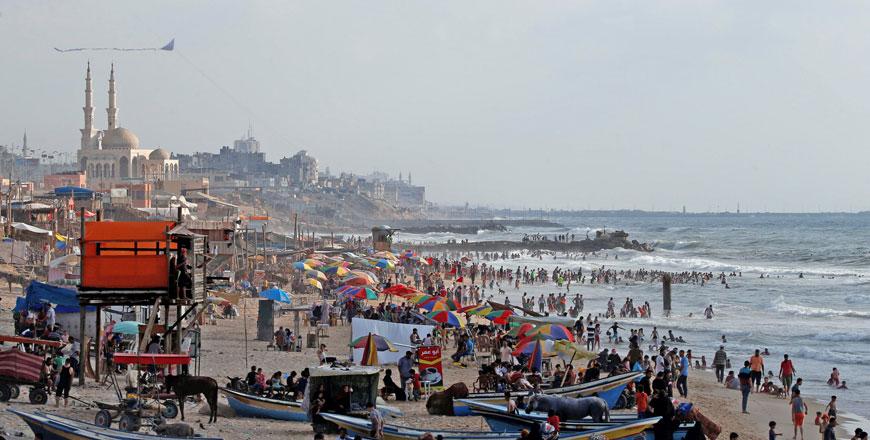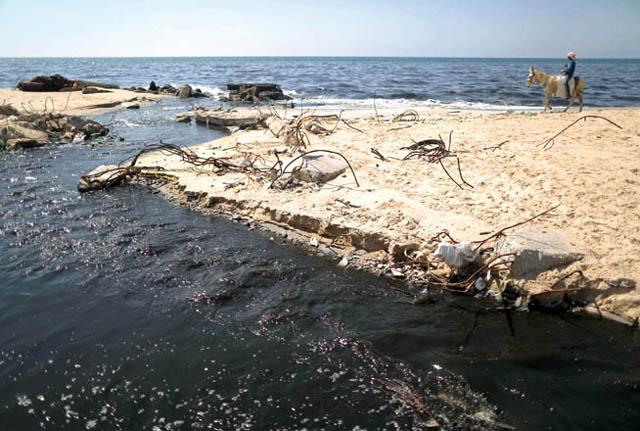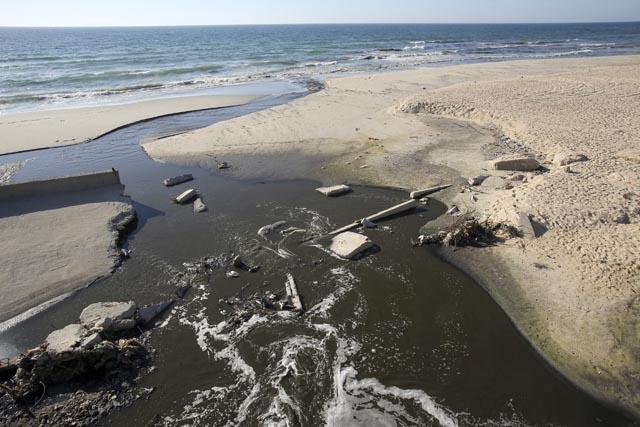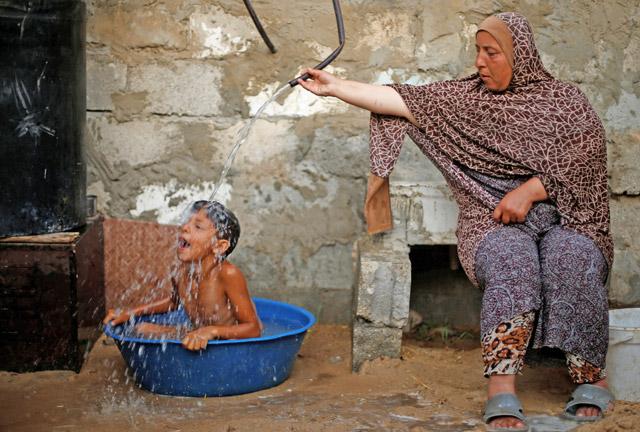You are here
Heat and power cuts force Gazans onto polluted beaches
By Reuters - Jul 16,2018 - Last updated at Jul 16,2018

Palestinians swim to cool off in the Mediterranean Sea as others enjoy their time on a beach in the northern Gaza Strip on Friday (Reuters photo)
GAZA — Maher Taha, his wife and six children sit enjoying the breeze on beach in Gaza, doing their best to ignore the rubbish and raw sewage floating a few metres off shore.
The water is polluted and the smell is unpleasant but they need a break from the oppressive heat at home — and there are few other options for a family on their budget with a power supply that only works four hours a day.
“We can see the sewage clearly, and we still come here — it costs us nothing,” says Taha, 46.
“Life is depressing and difficult and people have no escape but the sea.”
Warning signs tell people to stay out of the water at the beach near Nusseirat refugee camp in central Gaza Strip. Lifeguards go up to people and tell them about the dangers.
“We advise people not to go into the sea and to stay on the beach but they do not listen. We tell them the seawater is mostly polluted and they do not listen,” said lifeguard Khader Abu Jreban.
Power shortages in the territory of two million people have severely disrupted operations at sewage treatment facilities, leading to the discharge of wastewater into the sea.
Pools for rent
Gaza, whose main power supplier is Israel, has suffered problems with its electricity for the past decade.
Some citizens blame the shortages on a political rivalry between Hamas, the Islamist group that runs Gaza, and the Palestinian Authority based in the occupied West Bank. Others point an accusing finger at Israel, which along with Egypt imposes tight border restrictions.
UN figures showed 108 million litres of wastewater poured into the sea off Gaza every day in May. Pollution levels are four times higher than the international standard, according to the data.
Some richer Gaza families have responded to the pollution by building swimming pools — and renting them out for 300 to 700 shekels ($85 to $200) per day.
A Gaza water park, with several swimming pools and mechanical waves, offers another clean alternative to those who can afford the 10-shekel admission price.
“Water is treated with chlorine and the whole place is computerised,” said Hani Abdelbari, the facility’s executive director.
Vendors selling boiled corn and fried potatoes give visitors a taste of Gaza’s traditional beach food.
“It is something that we were used to and lost,” says Reham Shaik, out for a day with her three children.
Related Articles
GAZA CITY, Palestinian Territories — The death of a little boy after swimming in polluted seawater has put the spotlight on Gaza’s pollution
When Palestinians in the Gaza Strip seek some relief from the grind of life in an enclave plagued by conflict and hardship, they usually need to look no further than their sandy beaches.
GAZA — As Middle East summer temperatures soar above 35oC, Gazans are struggling to stay cool amid a power crisis, with less than four hours


















